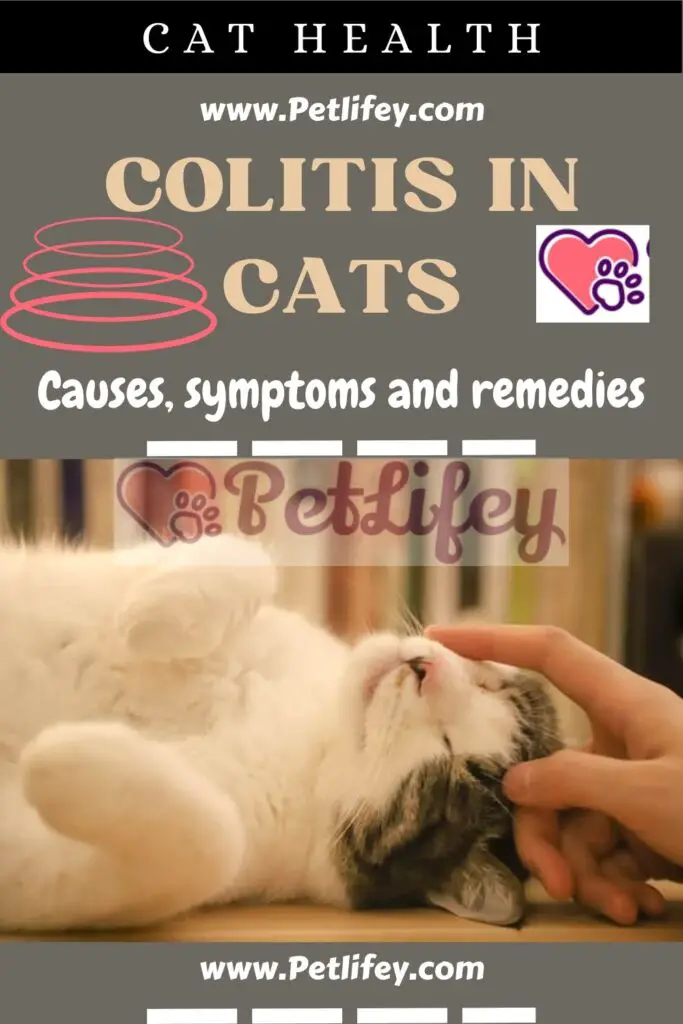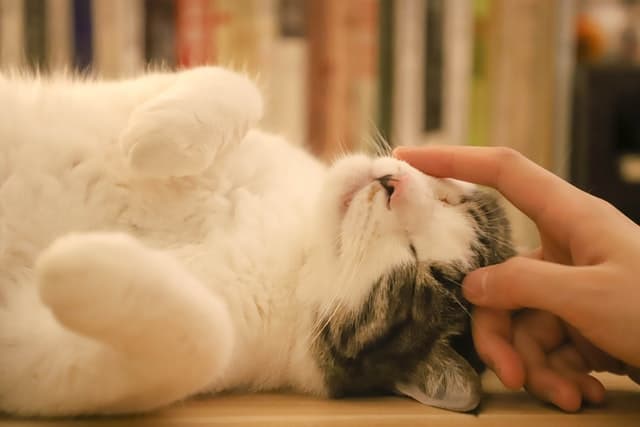
Colitis in cats is one of the most frequent intestinal disorders. Inflammation of the colon walls, which can be more or less severe, can result from many factors.
Colitis is the medical word for colon inflammation in cats. The latter is the lower part of the digestive system that runs from the cecum to the rectum, together they form the large intestine.
There are many causes that can lead to colitis in cats, including a bacterial infection or a condition called inflammatory bowel disease.
Depending on the cause, we can distinguish three types of colitis in cats:
- Acute colitis: comes suddenly
- Episodic colitis: This can happen once in a while
- Chronic colitis: lasting for a long time
Colitis in cats: causes
As we have said, the colon is an important part of the digestive system, and is efficient in the final stages of digestion, before the feces are expelled.
When the tissue lining the large intestine becomes inflamed, the final part of digestion is compromised, in which case you will notice blood in the cat’s feces.
Inflammation of the colon leads to the latter reducing the ability to absorb water from solid waste before being excreted in the feces, which causes diarrhea in the cat.
The causes of feline colitis can be many, we will list some of them below:
- Infectious diseases: internal parasites, infection with other microorganisms, bacterial or viral infection, acute infectious enteritis.
- Primary infiltrative intestinal disorders: cancer, inflammatory bowel disease.
- Other diseases that cause colon irritation: allergies to certain foods, stress and anxiety in cats , bacterial proliferation, food intolerance, ingestion of foreign bodies, antibiotics that alter the intestinal flora.
- Tritrichomonas fetus: is a gastrointestinal pathogen that can affect any type of cat, but especially younger cats.
There are some microorganisms that cause colitis in cats that can also infect humans, they are:
Bacterial microorganisms: Escherichia coli, some species of Salmonella
Protozoa: Tritrichomonas, Giardia
Helminth parasites: Trichuris
Symptoms of colitis in cats
The most frequent symptoms of colitis in cats are mainly related to the consistency and frequency of the feline’s feces. In the case of acute colitis, the symptoms come suddenly, when the colitis is episodic the symptoms increase and decrease, if instead the symptoms worsen as it is chronic colitis.
Here is a list of various symptoms that cats can have in case of colitis:
- Bloody diarrhea
- Diarrhea with mucus or fat (loose stools)
- Strain during defecation
- Increased frequency of defecation
- Difficult evacuation
- Urgency to get to the litter box
It must be said that in case of acute colitis, diarrhea will present itself with the presence of blood or mucus inside. As for episodic colitis and chronic colitis, the symptoms are the same but last for weeks.
To the symptoms listed above, if it is chronic colitis, the following symptoms must also be added:
- The cat sleeps more than usual
- Loss of appetite in the cat
- Weight loss
- Lethargy
- He retched
- The cat is hiding from everyone
- The cat does not want to be touched
- Bad condition of the coat
Diagnosis
The only one who can determine if our beloved feline has colitis is the vet. Thanks to various analyzes, he can confirm the diagnosis or not. To determine the cause of colitis, the vet may use the following tests:
- Fecal test to see if bacteria are present
- Blood exam completed
- Urine analysis
- Colonoscopy and biopsy to see if it’s cancer
- Immunoreactive trypsin
- Fiv test: test for the feline immunodeficiency virus
- Felv test: test for the feline leukemia virus
How to cure a cat with colitis

In most cases of colitis in cats, there is outpatient treatment, if it is for example acute colitis. If the cat’s colitis is severe enough to make them dehydrated that they require intravenous fluids and electrolytes, the cat stays in the hospital.
There are many medications that your vet prescribes for colitis in cats, including antibiotics, antimicrobials, and anthelmintics. In severe cases, the vet may also prescribe anti- inflammatories and corticosteroids.
To reduce the symptoms of colitis in cats, your vet may recommend that you fast for at least 24 hours. The feline should have potable water available, unless the vet agrees.
Stress and anxiety factors could aggravate the symptoms of colitis in cats, in fact it is advisable to keep the feline affected by this disease in a calm and quiet place. If these treatments do not help the cat recover from colitis, it could also be colon cancer.






